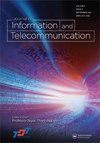蚁群优化模型检验效率与可理解性平衡的探索策略
IF 1.7
Q2 COMPUTER SCIENCE, INFORMATION SYSTEMS
Journal of Information and Telecommunication
Pub Date : 2022-03-22
DOI:10.1080/24751839.2022.2047470
引用次数: 1
摘要
模型检查是一种形式化和自动化的验证技术,用于表明软件系统的行为符合给定的规范。传统的模型检查使用详尽的搜索技术来查找规范的违规行为。然而,这些技术通常不适用于大型系统,因为它需要大量的计算资源。众所周知,基于搜索的软件工程可以有效地解决包括模型检查在内的许多软件工程问题。它通过使用群体智能和元启发式搜索方法来追求解决方案的效率和质量之间的良好平衡。本文的重点是使用蚁群优化进行最先进的模型检查。蚁群优化是一种元启发式、基于种群的随机优化算法。我们提出了两种探索策略,以进一步提高基于蚁群优化的模型检查的平衡性。所提出的策略引入了不同类型的随机选择机制,以使许多代理找到的解决方案多样化。这些策略有助于搜索算法有效地扩展可达区域。通过数值实验,我们证实,与现有的蚁群优化模型检查相比,所提出的策略需要更少的计算时间和内存,代价是找到稍微不合格的解。本文章由计算机程序翻译,如有差异,请以英文原文为准。
Exploration strategies for balancing efficiency and comprehensibility in model checking with ant colony optimization
ABSTRACT Model checking is a formal and automated verification technique to show that a software system behaves in accordance with the given specification. Traditional model checking uses exhaustive search techniques for finding violative behaviours of the specification. The techniques, however, often do not work for huge systems because it demands a huge amount of computational resources. Search-Based Software Engineering is known to effectively solve many software engineering problems including model checking. It pursues the good balance between efficiency and qualities of solutions by using swarm intelligence and metaheuristic search methodologies. This article focuses on the state-of-the-art model checking with Ant Colony Optimization. Ant Colony Optimization is a metaheuristic, population-based and stochastic optimization algorithm. We propose two exploration strategies to further improve the balance in model checking based on Ant Colony Optimization. The proposed strategies introduce different kinds of randomized selection mechanisms to diversify solutions found by many agents. The strategies help the search algorithm extend the reachable regions effectively. Through numerical experiments, we confirmed that the proposed strategies require less computation time and memory as compared to the existing model checking with Ant Colony Optimization at the cost of finding slightly less qualified solutions.
求助全文
通过发布文献求助,成功后即可免费获取论文全文。
去求助
来源期刊
CiteScore
7.50
自引率
0.00%
发文量
18
审稿时长
27 weeks

 求助内容:
求助内容: 应助结果提醒方式:
应助结果提醒方式:


